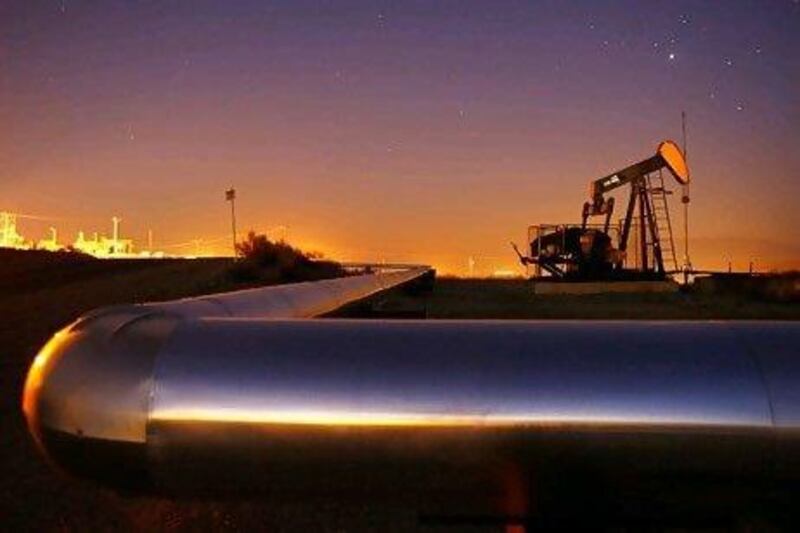Investors and analysts are preparing for a bumpy ride for at least the next six months as the European debt crisis stunts global growth and threatens to spill over to the Arabian Gulf.
While oil revenues should help to shield the region from a downturn, more negative twists in the global outlook could drag crude prices down, economists warn.
"My concern is with oil prices, which are a major credit driver for the GCC, and regional and sectarian issues," said Raza Agha, a senior economist at Royal Bank of Scotland for the Middle East and North Africa (Mena). "All of these things are depressing the outlook for the region."
Nagging doubts about the global recovery emerged this month after the IMF cut its outlook for world growth for next year by 0.2 per cent to 3.9 per cent and the US Federal Reserve chairman Ben Bernanke delivered a downbeat assessment of the economic health of the United States.
After a solid start to the year, the US economy looks in danger of unravelling after a slew of data this month showed a slowing jobs market, falling retail sales and a drop in business spending.
Signs the economies of China and other emerging markets are losing steam have also added to investor jitters.
But the main source of the global gloom remains the euro zone. Spain's benchmark 10-year bond yields have nudged above 7 per cent again, reigniting expectations the country will need funds from its neighbours.
We have been telling our clients that this euro is a slow-motion train crash that's happening in front of our eyes," Martin Briggs, the risk advisory consultant for the global payments company Afex Markets, told Reuters. "No one seems to have the will or the ability to make the tough decisions that need to take place."
Nouriel Roubini, an economist who predicted the 2008 global financial crisis, said indicators were pointing to a "perfect storm" next year.
"Next year is the time when the can becomes too big to kick it down [the road] … then we have a global perfect storm," Mr Roubini told Reuters.
For the GCC, the main risk of contagion is from lower oil prices. Despite raising its outlook for the Mena region this year to 5.5 per cent, the IMF said it expected aggregate prices to fall back from an average of US$104 per barrel last year to $102 this year, before sliding further to $94 next year.
Bahrain remains most vulnerable to a fall. It bases its budget on an aggregate break-even price of US$120 per barrel, estimated Mr Agha.
Abu Dhabi and Saudi Arabia both base their budgets on $80 a barrel, he estimated. Qatar had the lowest break-even price at $65.
Most of the GCC states have maintained high levels of spending this year that includes infrastructure and social areas.
"Lower oil prices would weaken money supply and, if sustained, eventually dent the recovery in private-sector credit growth," warned analysts at Bank of America Merrill Lynch in a research note.
A liquidity squeeze in the second quarter of the year led to deposit formation weakening and interbank rates rising. Deposits at Saudi banks dropped the most in nine months in May and the kingdom's interbank offered rate has risen about 20 per cent.
In the UAE it is a similar story with deposits dipping by 0.6 per cent in April to Dh1.14 trillion (US$310.35 billion), the latest Central Bank data showed.
The risk is if the deposit squeeze prompted banks to curtail lending, said analysts.
As the most open economy in the GCC, Dubai is most exposed to global turmoil.
"External headwinds could also likely slow down Dubai trade, its services-based sectors and keep the real-estate sector in the doldrums," the Bank of America report said.





